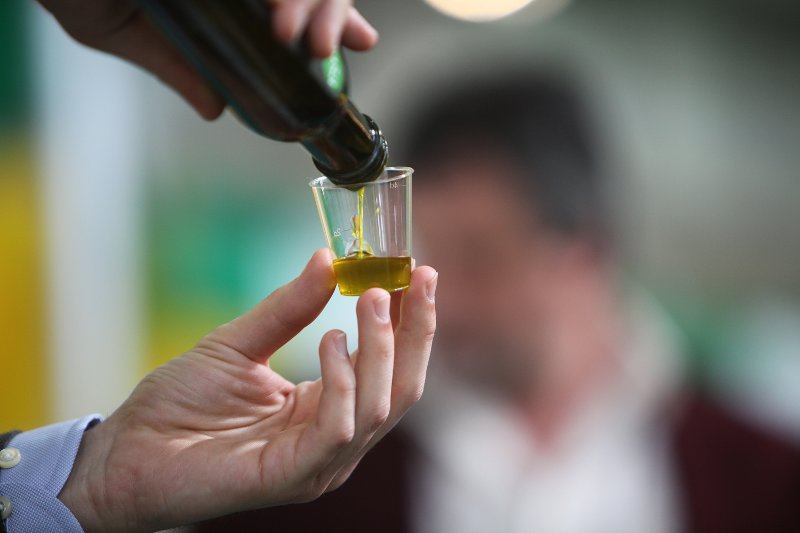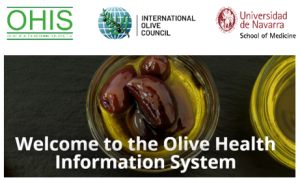

The website of the International Olive Council
 The specific metabolic contribution of consuming different energy-yielding macronutrients (namely, carbohydrates, protein and lipids) to obesity is a current topic of debate. A recent review summarizes the existing evidence concerning associations between the intake of different macronutrients with weight gain and adiposity. Overall, current evidence suggests that energy surplus is the main driver of overweight and obesity. On the contrary, the question of refined sugars and some fats playing complementary roles in weight gain and whether calories from different macronutrients count as equal still remain very controversial. In this regard, dietary patterns particularly rich in sources of monounsaturated fats, such as extra virgin olive oil in the Mediterranean diet, have been inversely associated with BMI. This highlights the importance of the fat profile and not just the total amount of fat or differences attributed to genetic background.
The specific metabolic contribution of consuming different energy-yielding macronutrients (namely, carbohydrates, protein and lipids) to obesity is a current topic of debate. A recent review summarizes the existing evidence concerning associations between the intake of different macronutrients with weight gain and adiposity. Overall, current evidence suggests that energy surplus is the main driver of overweight and obesity. On the contrary, the question of refined sugars and some fats playing complementary roles in weight gain and whether calories from different macronutrients count as equal still remain very controversial. In this regard, dietary patterns particularly rich in sources of monounsaturated fats, such as extra virgin olive oil in the Mediterranean diet, have been inversely associated with BMI. This highlights the importance of the fat profile and not just the total amount of fat or differences attributed to genetic background.
Le Conseil oléicole international (COI) a accueilli, le 4 février 2026 à son siège à Madrid, la présentation de la deuxième édition du Congrès mondial de l’huile d’olive (OOWC, pour Olive Oil World Congress),...

Le Conseil oléicole international (COI) a accueilli aujourd’hui un groupe de conseillers agricoles de plusieurs ambassades européennes à Madrid pour une séance de dégustation d’huile d’olive vierge....

Promouvoir la coopération méditerranéenne dans le secteur oléicole Le Conseil oléicole international (COI) a participé au VIe Forum international de l’huile d’olive vierge extra – Fira de Tots Sants de...
Le COI et l’Université de Navarre, à travers l’OHIS (de l’anglais Olive Health Information System), une plateforme dédiée à la recherche sur les propriétés de l’huile d’olive et des olives de table sur la santé, publient chaque semaine ou toutes les deux semaines un recueil d’articles scientifiques et une synthèse des recherches menées dans ce domaine.
Ces articles mettent en lumière les nombreux bienfaits de ces produits pour la santé.
Vous pouvez lire les résumés de ces recherches ici en français, anglais et espagnol et accéder à la liste des articles, ou visiter le portail OHIS.
Pour toute assistance, veuillez contacter iooc@internationaloliveoil.org.


La cuisine contemporaine puise son inspiration dans le régime méditerranéen.
Apprenez-en plus sur cette collaboration entre le Culinary Institute of America et le Conseil oléicole international pour faire progresser des choix alimentaires sains, durables et délicieux, avec un accent particulier sur la formation technique et l’innovation des menus pour les chefs.